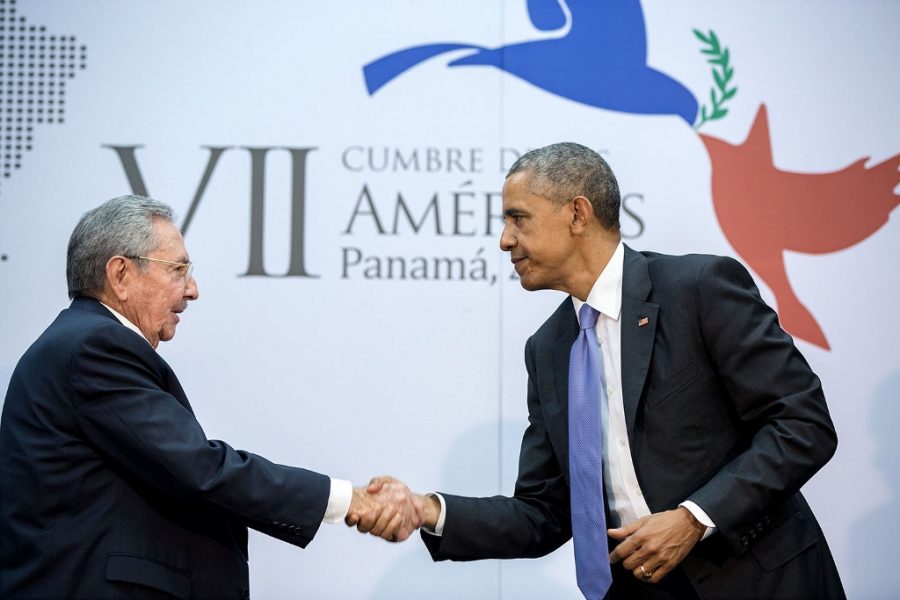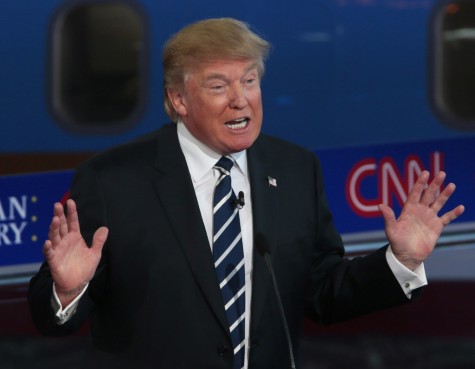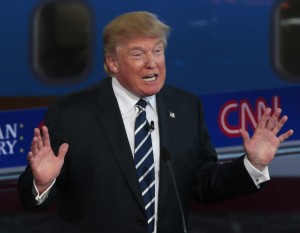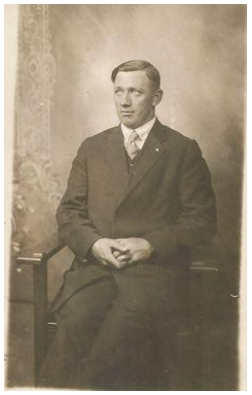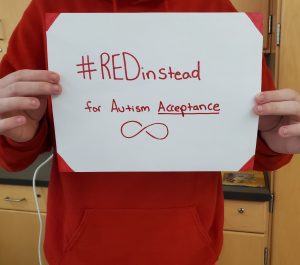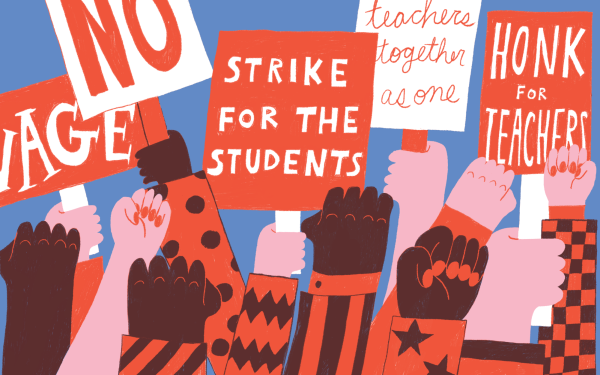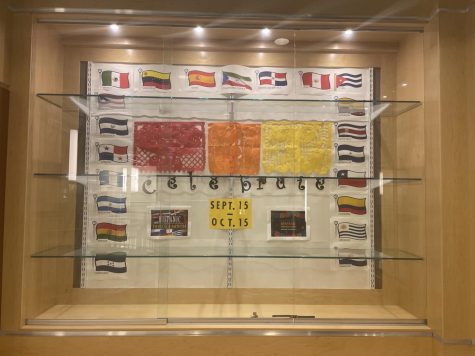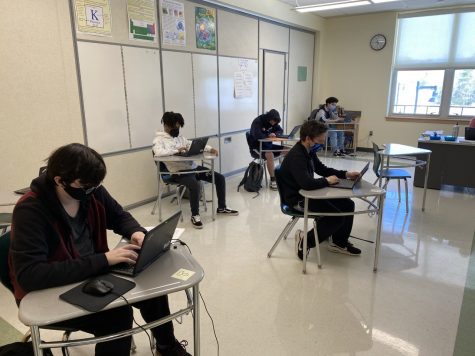What’s in Store for Cuba and the U.S.?
Diplomacy restored; will it remain under Trump?
April 11, 2015 – The culmination of years of talks resulted in this handshake between the President and Cuban President Raúl Castro during the Summit of the Americas in Panama City, Panama. (Official White House Photo by Pete Souza) Public Domain
November 26, 2016
April 11, 2015 marked an end to the years of tension between the United States and Cuba, when President Obama and Cuban President Raúl Castro shook hands while promising to restore diplomatic relations between the two nations.
This promise is truly a surprise to many, since diplomatic and economic relations between the U.S. and Cuba have been non-existent since 1961. America’s disapproval towards Cuban Prime Minister Fidel Castro’s communist policies and Cuba’s military and economic relations with the Soviet Union increased tensions between the two nations. Increased trade between Cuba and the Soviet Union led Castro to nationalize businesses owned by the U.S. and increase taxes on American imports, disadvantaging the American economy.
These problems led to the Bay of Pigs Invasion in 1961, which was initiated by the U.S. Central Intelligence Agency (CIA), and attempted to overthrow Castro from government rule. Although the attempt failed, it still “fuelled Cuban mistrust and nationalism,” according to the Council on Foreign Relations. This occurrence essentially led Cuba to permit the Soviet Union to build a missile base on Cuban land.
After the U.S. discovered that these Cuban missile sites were located just 90 miles away from Florida, President John F. Kennedy ordered a naval blockade around Cuba to prevent more weapons from entering the country and demanded the destruction of all missile sites. Fearing a nuclear war, Soviet leader Nikita Khrushchev made a public compromise with President Kennedy to deconstruct missile sites on the island, if the U.S. promised to avoid invasion of Cuba and to deconstruct their missiles in Turkey.
The Cuban Missile Crisis triggered the diplomatic and economic isolation of Cuba and the U.S. for several decades. Since then, travel and communication between the two nations have been rare. However, in 2014, President Obama and President Raúl Castro made a compromise to restore diplomatic relations. The two nations re-opened embassies in each nation’s capital and restored diplomatic relations. In March 2016, Obama visited Cuba on behalf of the U.S. for the first time since 1928. He promised to lift the trade embargo if Cuba made reforms to its political system that would guarantee Cuban people their rights.
Trump felt that Obama’s agreement was very weak and did not benefit Americans or Cubans.
— Nivetha Aravindan
The newly restored relations between the U.S. and Cuba could open hope for advancement in both countries. According to the Council on Foreign Relations Backgrounders, Julia Sweig, a Cuba and Brazil scholar at the Lyndon B. Johnson School of Public Affairs in Austin predicts that U.S.-Cuban relations will facilitate trade, investment, banking, telecommunications, pharmaceuticals, agriculture and travel for both countries. In fact, the U.S. is currently Cuba’s fifth largest trading partner. In addition, the U.S. hopes for reforms to take place in Cuba’s political system that will ensure the Cuban people their rights.
However, the recent victory of Donald Trump in the presidential election may tighten boundaries between the U.S and Cuba. Throughout his campaign, Trump was vague about his intentions for Cuba; however, one aspect he did emphasize was the importance of both Americans and the oppressed people of Cuba benefiting from the alliance. Trump felt that Obama’s agreement was very weak and did not benefit Americans or Cubans. If this continues to be his position, Trump may break diplomatic relations between the two nations. However, in a March interview with CNN, he stated that he would most likely continue maintaining diplomatic relations with Cuba, but he would want “much better deals than we’re making.”
An article published in the New York Times predicts that under Trump’s presidency, travel restrictions between the U.S. and Cuba will increase and restrictions on illegal immigration from Cuba will be toughened. In terms of business with Cuba, Maurcio Claver-Carone, the founder of a political action committee that favors the U.S. trade embargo, believes that Trump will restrict American investments with companies run by the Cuban military and restrict business transactions between Americans and Cuban officials. Many people interviewed by the New York Times felt that the increase of businesses opportunities between the U.S. and Cuba had only been advantageous to the Cuban government. Therefore, they seemed to be in favor of Trump’s ideas.
The restoration of diplomatic and economic relations between Cuba and the U.S. appear promising. A combination of Obama’s policies and the modification of certain unfavorable policies during Trump’s presidency may help maintain a favorable alliance between the two nations that will benefit both Americans and Cubans.
Postscript – Former Cuban president, prime minister and revolutionary Fidel Castro passed away on November 25 at the age of 90 setting off a period of mourning and jubilation for his supporters and detractors respectively.
Note – The Council on Foreign Relations Backgrounders, New York Times and history.com were used to gather information for this article.

